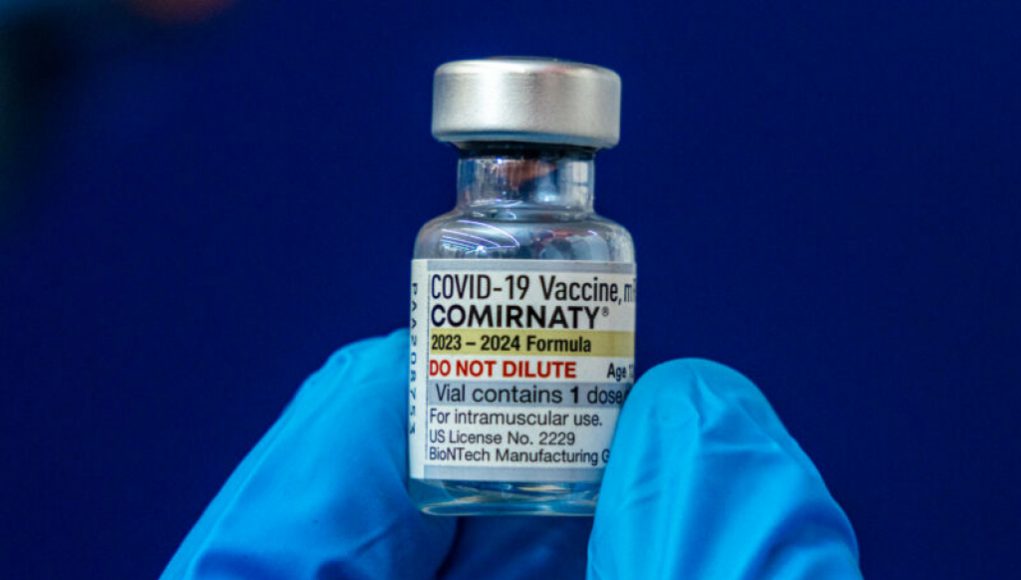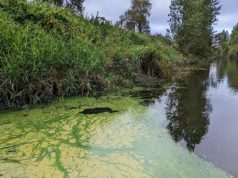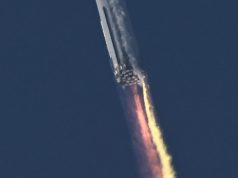Despite last year’s abysmal fall booster campaign, more than half of US adults say they plan to get the latest COVID-19 vaccine, which was greenlit by federal authorities last week.
According to polling by Politico and Morning Consult, 57 percent of registered voters said they would “probably” or “definitely” get the vaccine, which is a monovalent shot that targets the recent omicron subvariant, XBB.1.5. Specifically, 20 percent of voters said they would probably get the shot, while 37 percent said they definitely would.
Collectively, that’s nearly triple the actual uptake of last year’s updated vaccine, a bivalent shot that targeted both the ancestral strain and the omicron subvariants BA.4/5. In total, 20.5 percent of people age 18 or older received that shot, according to the most recent data from the Centers for Disease Control and Prevention. Overall, 17 percent of the US population got the bivalent booster.
The latest polling results largely square with a KFF COVID-19 vaccine monitor poll reported in April that found that 53 percent of Americans would likely get an annual COVID-19 shot if it was offered similar to an annual flu shot. Nearly a third, 32 percent, said they would be “very likely” to do so.
Advertisement
While the boosted interest in the latest vaccine is likely heartening to officials, the polling still shows a dangerous partisan divide that has plagued public health responses throughout the pandemic. In the Politico/Morning Consult poll, 79 percent of Democrats said they planned to get the updated shot, but only 39 percent of Republicans said the same.
That leaves 61 percent of Republicans who indicated they would not seek out the new vaccine. Forty-four percent of Republicans reported they “definitely” will not get the booster, while 17 percent said they “probably” will not. Independents, meanwhile, were split, with 48 percent saying they would ”probably” or “definitely” get vaccinated.
Politico noted that the fall vaccine rollout, which is now underway, comes amid a contentious GOP presidential primary, in which some candidates have already expressed their opposition to COVID-19 health measures.
Most notably, Florida Gov. Ron DeSantis and his controversial, hand-picked surgeon general, Joseph Ladapo, have continued to spread vaccine misinformation, falsehoods, and skepticism. Last week, Ladapo warned healthy people under the age of 65 against getting this year’s updated booster, contradicting the CDC. Ladapo had previously made unfounded safety claims about mRNA COVID-19 vaccines based on a dubious study. A subsequent investigation into the study determined key data and statistics on vaccine safety had been deleted from the analysis.
As before, CDC officials are rebuffing Ladapo’s latest remarks. “Any efforts to undercut vaccine uptake are unfounded and frankly dangerous,” CDC Director Mandy Cohen told Politico.
With the continued push to roll out the COVID-19 vaccine in the United States, researchers have begun to look closely at perspectives from Americans on the vaccine. A newly released survey by Gallup has found that over 50% of Americans believe they will need a booster shot at some point in the future in order to remain protected from COVID-19.
Interest in a vaccine booster shot mirrors Americans’ interest in receiving the first dose of the vaccine, which remains high. In fact, 78% of citizens aged 18 and older now report that they are likely to receive the first dose of the vaccine if given able. The interested booster shot has remained steady since February, with 55% of respondents in support.
The survey also found that interest in a booster shot is highest among those who are most vulnerable to COVID-19. Seventy-five percent of those over the age of 65 reported that they were likely to get a booster shot. This is likely due to a higher likelihood of age-related health complications associated with the virus.
Respondents to the survey also described their motivations for getting the vaccine in the first place. Overwhelmingly, the majority of respondents said that their primary motivation for getting a shot was to protect their health. Other reasons include protecting family and friends, as well as mitigating the economic impact of the virus.
It is clear that Americans view a booster shot as necessary in order to continue to mitigate the spread of COVID-19. In the face of a newly released booster shot from Johnson & Johnson, it is important to remain engaged and informed on the latest developments when it comes to fighting the virus.




















